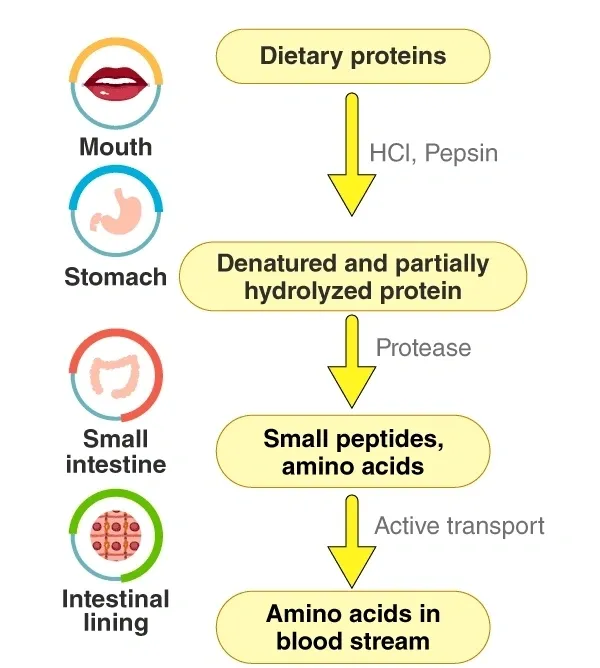- Customer Care +918420344568
Vegan Protein powder or Plant Protein powder are not bad for the kidneys. With more people adopting plant-based diets, vegan protein powders are increasingly popular. They provide a plant-based alternative to traditional protein powders like whey, suiting both vegans and anyone looking for a healthier protein source. However, there are misconceptions about vegan protein powders, particularly regarding their impact on kidney health. In this article, we’ll debunk these myths, explore research findings, and examine why vegan protein powders, including Sheer MADness Plant Protein Chocolate from the brand Sheer MADness, can be both safe and beneficial.
Sheer MADness is India’s only Brand that is completely free of any chemical additives, preservatives, colours or flavours, and stands out as the healthiest choice. No chemicals, no INS codes in small fonts, every Ingredient clearly mentioned on the front Label.

Protein is essential to our bodies, supporting tissue growth, muscle repair, and a range of metabolic functions. It also plays a critical role in immune health, energy levels, and enzyme production. Despite protein’s importance, concerns about its potential impact on kidney health have circulated, especially with regard to high-protein diets. These concerns are mostly based on the idea that increased protein consumption leads to greater kidney strain.
The kidneys are responsible for filtering waste products from the blood, including by-products from protein digestion. For individuals with pre-existing kidney conditions, the kidneys can become less effective at filtering, which may worsen with an excessive protein intake. However, in individuals with normal kidney function, studies indicate that a balanced protein intake does not pose health risks. Understanding how different protein sources affect the kidneys helps dispel misconceptions.
A widespread myth is that all proteins, whether from plants or animals, are equally stressful on the kidneys. While it’s true that digesting protein produces by-products such as urea and ammonia, healthy kidneys can efficiently process these waste materials. In fact, moderate protein intake generally has no negative impact on kidney function in healthy people.
According to a study published in the Journal of the International Society of Sports Nutrition, even high protein consumption (up to 3.3 grams per kilogram of body weight daily) showed no adverse effects on kidney health in healthy adults. This study provides reassurance for those concerned about protein consumption, highlighting that even increased protein intake poses no risks to kidney health in healthy individuals.
In cases of pre-existing kidney disease, a lower protein intake is recommended since compromised kidneys have a limited ability to filter out protein by-products. However, for healthy individuals, plant-based proteins like Sheer MADness Plant Protein Chocolate offer the added advantage of producing fewer metabolic by-products than animal proteins, thus reducing the strain on kidneys even further.
Another misconception is that vegan proteins are incomplete or less effective than animal-based proteins. Animal proteins are often considered superior because they are “complete,” meaning they contain all nine essential amino acids. While individual plant proteins may lack one or more amino acids, combining various plant protein sources creates a complete amino acid profile.
Sheer MADness Plant Protein Chocolate combines almonds, flaxseed, cocoa powder, and pure dark chocolate to form a balanced protein profile. This blend delivers a range of essential amino acids, offering a complete, high-quality protein source without the need for animal products. This product proves that vegan protein can be as efficient as animal-based proteins when paired wisely. Moreover, plant proteins come with added benefits, such as antioxidants, fiber, and omega-3 fatty acids, making them more nutritionally diverse.
Research has increasingly shown that plant-based diets, which include vegan proteins, can be advantageous for kidney health. A study in the American Journal of Kidney Diseases revealed that plant-based diets are associated with a reduced risk of chronic kidney disease (CKD). Plant proteins typically produce fewer acidic by-products compared to animal proteins, meaning less strain on the kidneys.
Vegan protein powders, when consumed moderately, are unlikely to damage kidneys in healthy individuals. On the contrary, they are beneficial for maintaining kidney health by producing fewer metabolic by-products. This is especially useful for people who might have an early stage of kidney issues, as plant-based proteins are less taxing on their kidney function.
Sheer MADness Plant Protein Chocolate offers a 100% natural and chemical-free protein blend. Let’s look at the key ingredients and the benefits each offers:
Each of these ingredients delivers high-quality, plant-based protein with essential vitamins and minerals. Sheer MADness Plant Protein Chocolate is free from artificial flavorings, preservatives, or chemicals, making it an excellent choice for health-conscious consumers looking for a clean, nutrient-rich protein source.
Some people believe that plant-based proteins are less digestible and harder on the digestive system compared to animal proteins. However, this myth is debunked by advances in food processing and the development of high-quality vegan protein blends. When combined effectively, as in Sheer MADness Plant Protein Chocolate, plant proteins are easily digestible and provide a complete amino acid profile, comparable to animal proteins.
The blend of almond and flaxseed in Sheer MADness helps create a smooth, easy-to-digest protein powder. These ingredients enhance each other’s amino acid profile and make digestion easier due to their fiber content, which also supports a healthy gut.
Another myth is that vegan protein powders are not as nutritionally dense as animal-based powders. While some vegan proteins may lack certain nutrients, Sheer MADness Plant Protein Chocolate addresses this by offering a nutrient-dense blend of almonds, flaxseed, cocoa, and pure dark chocolate.
Almonds and flaxseed provide essential fatty acids, fiber, and minerals such as magnesium and potassium, which support cardiovascular health and muscle function. Cocoa and dark chocolate contain antioxidants and compounds that support mood and cognitive function. This nutrient variety makes Sheer MADness not only a source of protein but also a source of multiple health-promoting nutrients.
The quality of protein plays a role in kidney health. A study published in Nutrients found that plant-based proteins typically generate fewer nitrogen by-products than animal proteins. This matters because these by-products place strain on the kidneys, as they must be filtered out. Plant proteins, therefore, present a more kidney-friendly option, particularly for people concerned about maintaining long-term kidney health.
In those already diagnosed with kidney disease, studies suggest that a shift to plant-based proteins may slow disease progression. According to the American Journal of Clinical Nutrition, plant-based diets with low phosphorus and potassium levels help CKD patients manage their intake more effectively than animal-based diets. Plant protein powders, such as Sheer MADness, contain lower levels of these minerals, allowing them to be a safer protein option for people with early-stage kidney issues.
Choosing vegan protein powders may offer significant kidney-related advantages:
1. Is vegan protein powder safe for healthy individuals?
Yes, for healthy kidneys, moderate consumption of vegan protein powders poses no health risks, according to research.
2. Do studies support the safety of plant protein for kidneys?
Yes, research shows plant-based proteins may benefit kidney health due to reduced acid and nitrogen by-products.
3. Is Sheer MADness Plant Protein Chocolate safe for people with mild kidney issues?
In moderation and under medical supervision, Sheer MADness Plant Protein Chocolate can be a safer alternative due to its lower phosphorus and potassium content.
4. Do vegan proteins increase kidney stone risk?
Vegan proteins, particularly those low in purines and acid-forming compounds, do not significantly raise kidney stone risk.
5. Can Sheer MADness Plant Protein Chocolate replace animal-based protein in the diet?
Yes, this plant protein offers complete amino acids and multiple health benefits, making it a suitable animal protein alternative.

Digestion of Protein.
Vegan protein powders, particularly those made with natural, balanced ingredients like Sheer MADness Plant Protein Chocolate, are not a risk to kidney health. Here’s a summary of why they are kidney-friendly:
Switching to a plant-based protein powder like Sheer MADness Plant Protein Chocolate may be a wise choice for anyone concerned about long-term kidney health.

The myth that vegan protein is harmful to kidneys is largely unsupported. With balanced, plant-based ingredients, vegan protein powders like Sheer MADness provide essential nutrients that can support muscle, immune, and kidney health.
I would also request you to please read my previous post: Plant Protein, Protein Everything you should be aware of.
These are the same lines from my book “Great Health Comes from Exercise & Nutrition”
a) Everyone is an individual, so what suits me, may or may not suit the next person.
b) If a person has a medical condition, a doctor’s advice and prescribed medication will only help.
c) While buying any protein powder from the market read the labels carefully. Also, watch out for various codes, and words like Anti-caking agent, and INS 551( Also known as Silicon dioxide), All these are laboratory-made chemicals, and although approved by regulatory bodies think twice, will you consume a spoon of Silicon dioxide? And Silicon dioxide is just one product, there are numerous others like BHA ( Butylated hydroxyanisole ), BHT ( Butylated hydroxytoluene ) and the list of lab-made chemicals goes on and on with various codes, that we generally ignore.
Hence read the labels especially the ingredients list of the product before buying.
If you are interested in buying chemical-free Natural vegan Protein powder, Health drinks for kids or our delicious but chemical-free Energy bars and Protein bars shop @ Sheer MADness.
d) Exercise is the key to fitness, we should always keep in mind that exercise and nutrition are two sides of the same coin and always go hand in hand. So only nutrition will not help you attain any goals till it is not supplemented with Exercise.
e) Excess of anything is wrong, it can be the best nutrient-filled superfood, but one should consume only recommended quantities.
f) Regarding health, fitness, and nutrition, remember that Rome was not built in a day. Your discipline and consistency is the key.
g) It’s not only Exercise and protein that builds muscles, but there are numerous other factors like a healthy gut, numerous macro and micronutrients, your body type and DNA, the amount of rest the body gets, the lifestyle an individual lives, and on and on it goes. Out of all these, exercise and nutrition are within our control, and one should focus on these two primary aspects.
h) The most important part of fitness is that nothing is better than exercise and a balanced meal.
Disclaimer: Our products are a source of HEALTHY NUTRIENTS and COMPLETELY FREE OF ANY ADDED CHEMICALS.
We do not claim to cure any medical condition.
The content provided is informational. We do not claim to diagnose or treat a person with any specific medical condition.